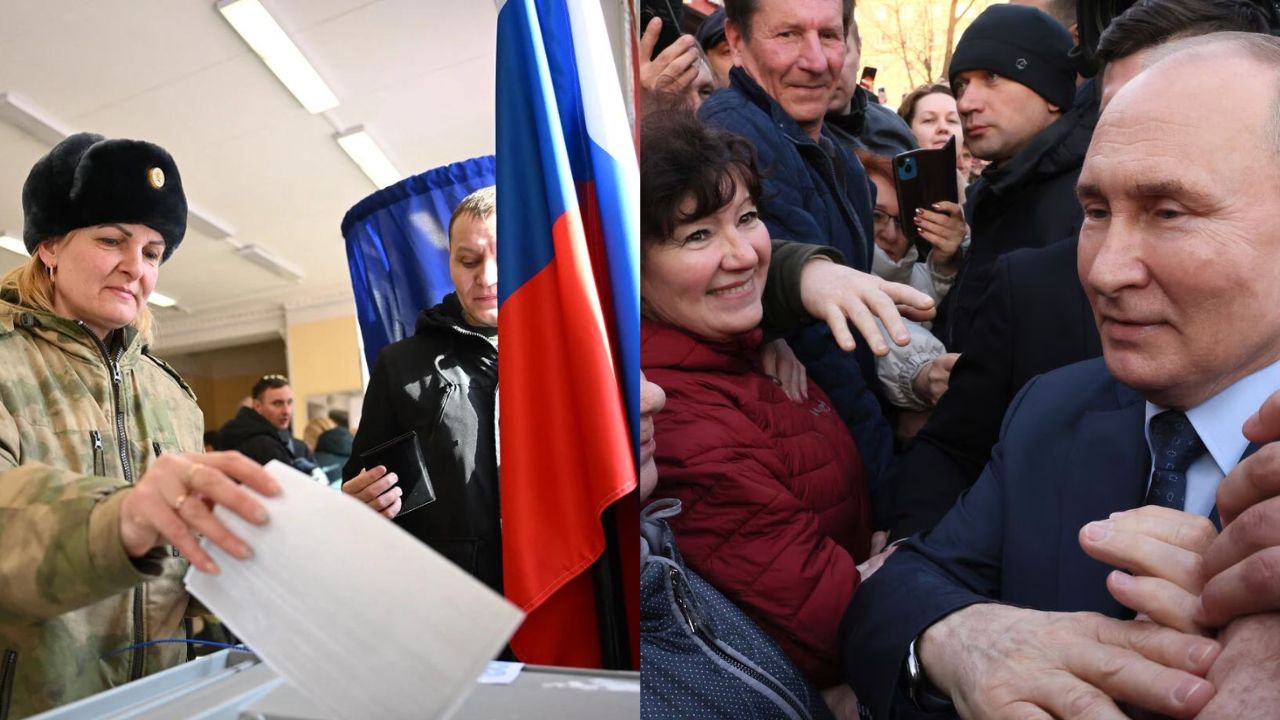Voting has commenced in Russia’s presidential election, widely anticipated to secure Vladimir Putin another six-year term in office.
The voting process spans three days, although the outcome is virtually certain as Putin faces no significant opposition. Polling stations opened in the Kamchatka Peninsula, Russia’s easternmost region, at 08:00 local time on Friday (20:00 GMT on Thursday) and will conclude in the westernmost Kaliningrad exclave at 20:00 on Sunday.
Putin, aged 71, announced his candidacy for a fifth presidential term during a grand military awards ceremony last December. At this solemn event, held in one of the Kremlin’s most lavish halls, the Russian leader of 24 years had just presented top honors to soldiers involved in Russia’s “special military operation” in Ukraine.
While engaged in conversation with a small group of individuals, Vladimir Putin was approached by Lieutenant Colonel Artyom Zhoga, the commander of a pro-Russian unit in Ukraine’s occupied Donetsk region. Zhoga emphatically declared, “We need you, Russia needs you!” urging Putin to run as a candidate in Russia’s upcoming presidential election. The gathered participants echoed their support.
In response, Putin nodded and announced, “Now is the time for making decisions. I will be running for the post of president of the Russian Federation.”
Although his spokesman Dmitry Peskov later characterized the decision to run as “absolutely spontaneous,” it’s rare for the Kremlin to leave such moments to chance. Immediately, the well-orchestrated media apparatus of the Kremlin sprang into action.
Across all state channels, the 71-year-old President Putin was portrayed as a national leader towering over any potential contenders. “Support for the president extends beyond party lines,” one correspondent on state TV news declared later in the week. “Vladimir Putin is the candidate of the people!”
Putin has already surpassed any ruler in Russia since Soviet dictator Joseph Stalin. He has held the presidency since 2000, with only a brief hiatus as prime minister due to the two-term limit stipulated by the Russian constitution.
Subsequently, he altered the regulations to grant himself a fresh opportunity to run again in 2024, effectively resetting his previous terms to “zero.” This implies that he could potentially seek another six-year term in 2030, coinciding with his 78th birthday.

Throughout his tenure, Vladimir Putin has systematically strengthened his hold on authority, eradicating any substantial challenges to his leadership. Many of his most vocal opponents have met grim fates, finding themselves either deceased, incarcerated, or living in exile.
However, the Kremlin remains steadfast in its efforts to maintain an appearance of legitimacy in Russia’s electoral process. While the ultimate outcome of the election is beyond doubt, the authorities place significant emphasis on achieving a high voter turnout, which they will interpret as a validation of Putin’s widespread support.
Officially, the turnout for the last election in 2018 was reported to be 68%. However, international observers documented numerous instances of ballot-stuffing.
This year, voting has been made more accessible than ever, with the process concluding on Sunday. In the regions of occupied Ukraine that Russia refers to as its “new territories,” polling stations opened 10 days before the official election day, and social media has been inundated with advertisements encouraging people to cast their votes.

